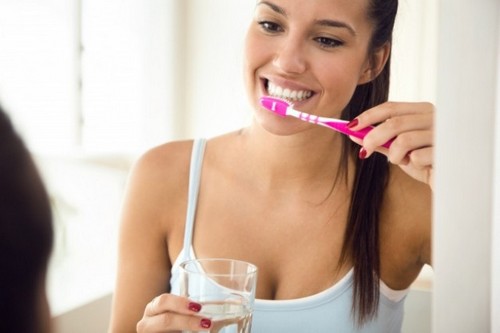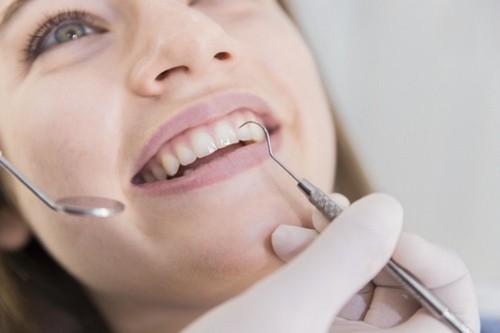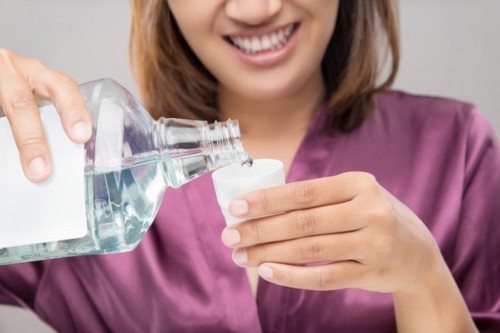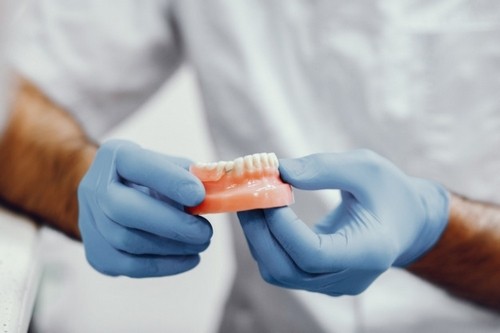Distinguish between hygienic, therapeutic and whitening toothpastes. What is hygienic and whitening pastes is clear from the definition. Hygienic – designed to cleanse teeth from food plaque and refresh the oral cavity, they do not contain special therapeutic and prophylactic additives.
Dental Care: Toothpastes and Gels
Pastes and gels can be combined into one group of dentifrices. Their principal difference is that gels have a lesser cleaning effect (they do not contain abrasive substances).
But the gels are more complex in composition, and therefore in direction and degree of impact on the teeth. A clear distinction can be attributed to the fact that pastes have a foaming property, which the gels do not have, but the opinion that this characteristic detracts from the effectiveness of the gels is a fallacy. Gels and pastes cannot be compared at all, it is better to consider gels as an addition to pastes, especially when it comes to therapeutic and preventive effects on teeth.
Whitening toothpastes serve to restore the whiteness of tooth enamel, they contain more abrasive components (true, soft action). As for therapeutic and prophylactic pastes, they are: anti-inflammatory, antiseptic, anticaries, antifungal, used to reduce bleeding gums, with increased sensitivity of the teeth, etc.
As an example, we can cite several types of therapeutic and prophylactic pastes:
- Vitaminized normalize the metabolism in periodontal tissues, have an antioxidant and capillary-strengthening effect.
- Fluorine / phosphorus paste activates metabolism.
- With extracts of medicinal plants and natural oils, hemostatic, anti-inflammatory, stimulating, wound healing effects, normalize trophic tissue.

Beyond this classification are children’s toothpastes, which, taking into account the age characteristics of children’s teeth, contain less active components than adult paste, and they are always low abrasive. In addition, children’s pastes are neutral in taste (or have fruit flavors), which is important for a child.
Hygienic pastes are used, as a rule, in adolescence and youth, and then if there are no problems with teeth. An adult is recommended to use 2 toothpastes daily. In the morning – whitening, in the evening – therapeutic. It’s even better to have several therapeutic pastes, plus a couple of gels, to alternate their use every 2 weeks. If necessary, in one session of brushing your teeth, you can use 2 therapeutic and prophylactic pastes.
Dental Care: Powders
Dental powders are almost never used now because of their high abrasiveness, which negatively affects tooth enamel. But if you do not abuse the powder and use it no more than once a week, and preferably once every 2 weeks or even once a month (the so-called general brushing), we will get a compromise combination of harm and benefit. After all, dental powder very effectively removes plaque, and in the composition of modern dental powders there are vegetable oils to strengthen the gums and against their bleeding.
Dental Care: How to Choose a Toothbrush
When choosing a toothbrush, you should remember that it is multifunctional, namely:
- For mechanical removal of food debris.
- To clean tooth enamel from plaque.
- For gum massage.
- To cleanse the surface of the tongue.

Toothbrushes are diverse in materials, stiffness, and bristle shape.
Based on bristle materials
Brushes are made of synthetic or natural fiber. Lately, dentists, oddly enough, recommend using synthetic fiber brushes, considering them more hygienic.
The shape of the bristles
The main requirement is rounded ends to prevent injury to the gums. It is also important that the brush has a multilevel length of bristle hairs to facilitate access to inaccessible places in the oral cavity. And pay attention that the surface on which the bristles are attached is free of burrs.
By degree of rigidity
Brushes are divided by 3 degrees of hardness:
- Soft (soft) -recommended for those who are prone to increased abrasion of tooth enamel and who have inflammatory processes in the periodontium. Children are always advised to buy soft brushes. There are also super soft brushes (extra soft).
- Medium – Recommended for those who have normal periodontal and dental conditions.
- Hard – suitable for those who suffer from the formation of tartar, but do not have sensitive gums. Recommended for heavy smokers.
Do not forget that the brush is recommended to be washed with soap before use, and after three months of use, replace with a new one.
Dental Care: Rinses and Polishes
If you strictly adhere to the rules of dental care, then rinse should be used:
- At the final stage after brushing, because of its physical properties, it has the ability to penetrate deep into the interdental space, where the brush does not reach, and cleans the microbes more thoroughly.
- After each meal.

But, in any case, this procedure is mandatory for those who have a problem with their teeth, for those who are genetically predisposed to diseases of the oral cavity and for those who wear braces or dentures.
Dental polishes are designed to clean tooth enamel from any plaque, including color stains and to polish the surface of the tooth. But unlike, say, dental powders, polish is more gentle. For these purposes, polishes contain micropolishing and optical bright-forming particles.
Dental Care: Dental Floss
Dental floss allows you to clean the lateral surfaces of the teeth and interdental spaces, and as effectively as floss, it does not clean any other dental products. It is advisable to use it after each meal or at least during the evening brushing.

There are a lot of types of produced threads:
- By impregnation: waxed (waxed) or not waxed.
- The cross section of the thread: round and ribbon (for wide gaps), flat (for narrow).
- By the content of additives: with menthol, with fluorine, etc.
There is even a “super-floss” thread that is used for periodontal diseases and in the presence of bracket systems and dentures in the oral cavity.
Does such an integrated approach to choosing dentifrices seem too thorough to you? But why not play it safe for the sake of having your own healthy and beautiful teeth instead of ideal but alien implants?
And the money / time spent on the purchase of care products is not comparable with the cost of dental services. Not to mention the burden of concomitant diseases of internal organs that can develop amid problems with teeth. No wonder a smile showing perfect teeth has always been considered the standard of human health.



